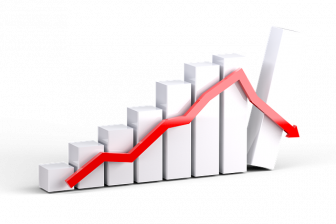 Asking prices for residential properties across the UK are falling and there are signs that the fallout from the mini-Budget bond market rout is weighing on first-time buyers, Rightmove said yesterday.
Asking prices for residential properties across the UK are falling and there are signs that the fallout from the mini-Budget bond market rout is weighing on first-time buyers, Rightmove said yesterday.
According to the latest data provided by the property portal, asking prices for homes dropped 1.1%, or by £4,159 month-on-month in the past month, following a 0.9% increase over the previous month.
The decline – despite the overall economic uncertainty – was in line with the average fall recorded in November during the pre-pandemic years of 2015-2019, it said.
However, Rightmove said former prime minister Liz Truss’s growth plan, which triggered a steep rise in borrowing costs when it was announced in September, accelerated thew UK housing market slowdown.
Property industry reaction:
Jeremy Leaf, north London estate agent and a former RICS residential chairman, commented: “The small drop in asking prices is certainly not unexpected given the reduction in new buyers, particularly over the past few weeks after the mini-Budget frightened the life out of many.
“Bearing in mind these are asking not selling prices, we might have anticipated a sharper correction but reflects what we’re seeing on the ground.
“More realistic buyers and sellers are negotiating hard – often to utilise existing mortgage offers on more advantageous terms before rates rise even higher.”
Stephen McCarron, NAEA Propertymark president, commented: “The portals latest data reiterates what our member agents are seeing on the ground. We know that buyer demand remains strong but given the cost of living on the rise and interest rates increasing buyers are becoming more cautious with their budgets.
“However, alongside the financial strains in today’s current economic climate, this slowing in house prices was due to occur naturally given the huge spike seen in recent months, as prices achieved were unsustainable and unrealistic for many buyers in the market.”
Simon McCulloch, chief commercial and growth officer at Smoove, said: “The latest figures from Rightmove are not surprising considering the tumultuous period we have experienced recently. As Rightmove confirms though, the 1.1% dip is in line with previous records for this time of year and during the pre-pandemic years. However, higher mortgage rates have led to a fall in new buyer enquiries, driving down current demand. Meanwhile, the cost-of-living crisis continues to tighten budgets and provoke caution among buyers.
“Nevertheless, with the Bank of England recently indicating that we may be approaching the peak of its base rate hikes, there is potential for a slight easing of borrowing costs in the coming months. Under the new management of Prime Minister Rishi Sunak and Chancellor Jeremy Hunt, we can also expect greater economic stability going forward. A complete recovery will require time, but sound economic management, in combination with strong underlying demand for housing should see a more robust market come back in 2023.”
A spokesperson for Chestertons commented: “Buyers have been rushing to complete purchases in order to safeguard the fixed-rate mortgage rates they had already agreed with lenders.
“Meanwhile, many would-be sellers are waiting for more economic and political certainty before they put their properties up for sale, which will cause a shortage of new properties coming onto the market in the New Year.”
Tomer Aboody, director of property lender MT Finance, said: “As we head towards the end of the year and the desire to complete on a property purchase or sale intensifies, sellers are reducing prices in order to get transactions through. Rising costs and interest rates are having an impact but largely buyers and sellers remain resilient.
“With the expected higher mortgage rates already resulting in buyers and sellers feeling the pinch, many of the new properties coming to market are priced to reflect this – slightly reduced to allow for extra payments as well as building in any market reduction over the forthcoming 12 months or so.
“Thankfully, the interest rate pain could have been a lot worse but the markets are now factoring in a lower maximum predicted rate as they respond well to Rishi Sunak becoming prime minister.”


Comments are closed.